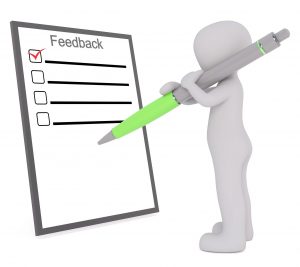Thinking about how to incorporate self-regulated learning (SRL) skills and study strategies into the classroom has brought me to a component of teaching and learning: self-assessment. I want to incorporate SRL skills and study strategies into my teaching so that students can be more effective learners and are more efficient at studying with the goal of achieving more on their summative assessments. I have already planned on using study strategies as means of formative assessment throughout a unit, an example of assessment for learning. After reading John A. Ross’ “The reliability, validity and utility of self-assessment,” I believe that using SRL skills as assessment as learning through self-assessments of assignments can help enhance student’s self-regulation skills and can improve their self-efficacy.
Why self-regulation and self-assessment go hand in hand:

“We do not learn from experience… we learn from reflecting on experience.” – John Dewey
Students who are self-regulated learners monitor their learning process, set goals and use effective strategies to meet them, and modify their behaviors based on feedback (Zimmerman, 1990). I believe that self-assessment can be an effective tool for students to monitor their (academic) progress by providing themselves feedback on where they need to improve or change their strategies and behaviors. This is a clear example of assessment as learning as student are able to reflect on their efforts, evaluate their performance and determine their strengths and weaknesses.
What the research has to say:
Ross’ article is a review of research on student self-assessment. One of the main findings was that self-assessment can contribute to increased achievement and improved behavior in students (pg. 5). Ross summarizes the three processes that self-regulated students use to monitor, interpret and modify their behavior:
1. self-observation (i.e. focus only on areas that are being assessed),
2. self-judgement (i.e. determining if and how well they met their goals), and
3. self-reaction (i.e. interpreting their level of satisfaction based on their goal achievements).
The central finding of Ross’ review was that the reliability, validity and utility of self-assessment can be enhanced by teaching students how to properly assess their work (pg. 5). Ross outlined the self-assessment training that he has used, that I hope to be able to implement into my teaching practice (pg. 4-5):
1. involve the students in defining assessment criteria (e.g. for assignments that they will self-assess),
2. teach students how to apply their created criteria (e.g. model an application of the rubric),
3. give students meaningful feedback on their self-assessments (e.g. discuss differences between self-assessment and teacher-/peer-assessment), and
4. guide students on how to use their assessments to develop action plans (e.g. help students create short- and long-term goals, as well as what strategies they can use to achieve their goals).
Ross also indicates the positive effect self-assessment training can have on student self-efficacy. Ross states that when students are learned in self-assessment and teachers foster self-assessment through rubric design, students can perceive themselves as successful, interpreting their performance as mastery (pg. 6). Self-efficacy is enhanced vicariously in the classroom when self-assessment is incorporated into assessment, such as when students are given more responsibility and ownership in their learning by creating rubrics (pg. 6).
Using self-assessment in my teaching practice:
Based on Ross’ review, I intend to use self-assessments with my students to enhance their self-regulation skills, monitor their self-efficacy, and provide another source of feedback. Self-assessment is a great method of tracking student learning goals (both curriculum and their own) and offers a method for me to provide guiding feedback on how they can incorporate new skills or behaviors to achieve their goals.
Citations:
Ross, J. A. (2006). The reliability, validity and utility of self-assessment. Practical Assessment, Research and Evaluation, 11(10), 1-13.
Zimmerman, B. (1990). Self-regulated learning and academic achievement: An overview. Educational Psychologist, 25(1), 3-17.
